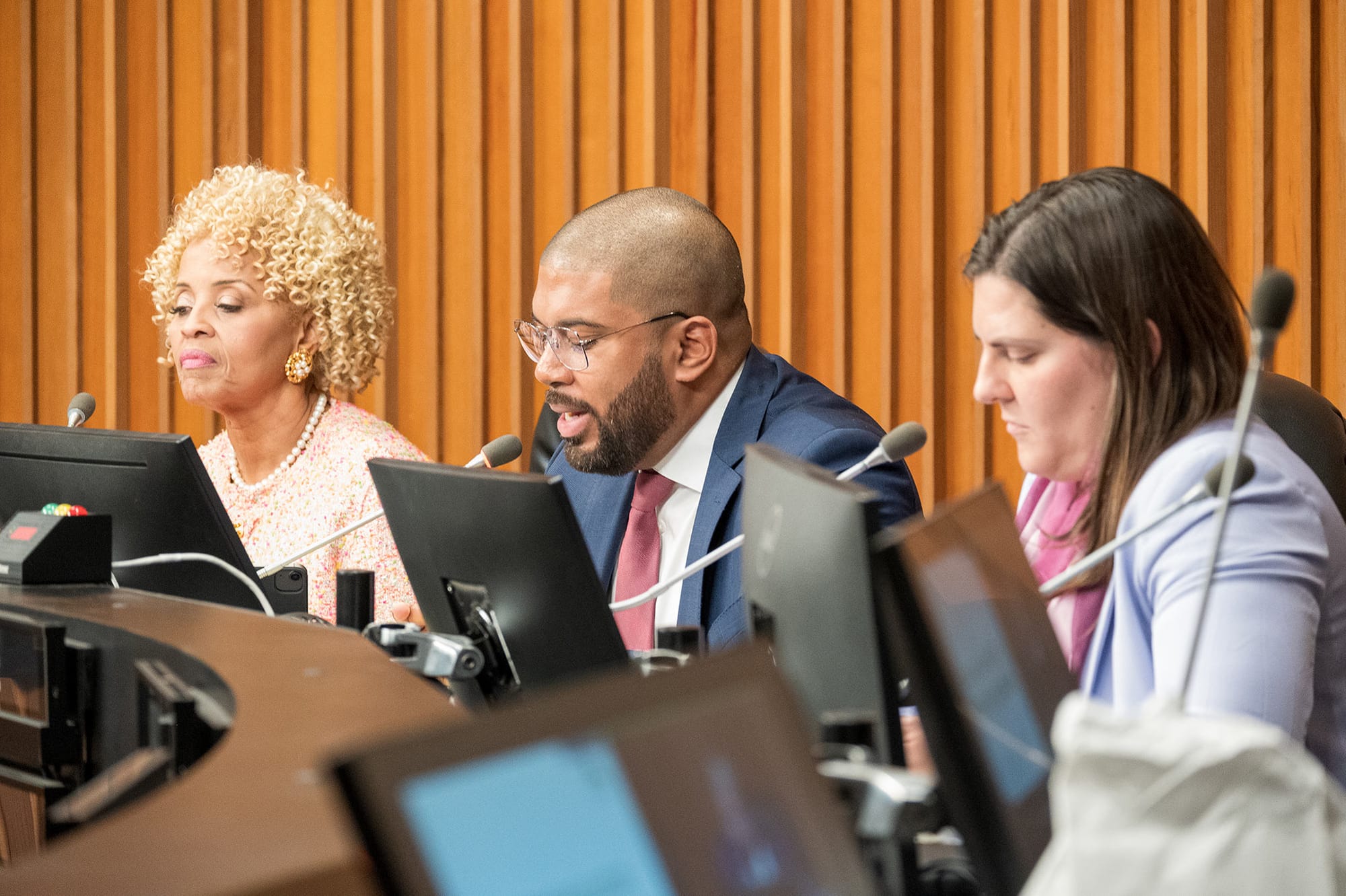
VALLEJO – The Vallejo City Council voted to fund the city’s mobile crisis response team IHART for two more months, preventing the program from shutting down in June one year after launching – although its long term future is not yet settled.
The council voted unanimously Tuesday to use $310,000 from awards received in settlements of opioid lawsuits to keep the IHART program functioning through July. Noting the program’s successes in Vallejo, the council also unanimously approved increasing its total budget by $200,000 to sustain it until the next budget cycle.
IHART offers an alternative emergency response service operated by the nonprofit Felton Institute with mental and behavioral health support and social services without police intervention. The program employs civilians to respond to 911 calls and offer follow-up services and case management to people struggling to access support services, healthcare and housing and handled more than 1,300 crisis calls between April 2024 and April 2025.
That work has spurred an outpouring of support from the community, culminating with numerous emails to councilmembers this month with concern about IHART’s financial strife and questions about why the city waited so long to find funds for the program.
The council heard the item after the Measure P Oversight Committee recommended discussing new funding following a presentation last week. At that meeting, Felton Institute CEO Al Gilbert said the program operated on a $1.2 million budget for the last year but has been going over its funding for months and issued layoff notices to all staff earlier this month.
IHART has been funded through grants from the U.S. Department of Justice administered by the Vallejo Police Department, which Vallejo Police Deputy Chief Robert Knight said last week was not sufficient without city support.
Despite the last minute plea for support, Councilmember Tonia Lediju said she and other members of the council “were quite well aware” of IHART’s financial problems, and Murray, the police department and Felton and IHART staff had been meeting earlier in the year to discuss it.
“It was my understanding that we had resolved that issue and had determined that we were going to fully fund this program,” Lediju said. “Our city manager did have the appropriate meetings to ensure that IHART was funded.”
However, Vallejo staff said that the city acted within the last week to find creative ways to use funding to keep IHART operating.
Assistants to the city manager Jason Ackley and Natalie Peterson said Tuesday that Vallejo has received about $1.3 million from settlements of lawsuits against opioid manufacturers. These funds are restricted to use within the next several years to fight the opioid epidemic through remediation activities, such as addressing the misuse of opioid products. Spending it on IHART to support referrals of vulnerable to housing, harm reduction and wrap-around services would fulfill this requirement, they said.
City Manager Andrew Murray said that the city received the opioid settlement funds more than a year ago, but staff recently realized the money fits IHART’s current needs.
“It doesn’t sound like, based on what I know, we’ve ever used or expended any of our opioid funds, so there would not have been a proposal in a past budget for those,” Murray said. “But there’s a funding gap for IHART which has inspired us to accelerate the request for these funds.”
Councilmember Alexander Matias said it’s another case of the city, pressed with a dire financial situation, suddenly finding money to use to cover a problem. He said it’s important to know how much money the city has in total, since the council faces a projected $6.61 million deficit and continues to request Measure P sales tax revenue to cover end-of-year requests, including for street repaving projects.
“It would be incredibly helpful to this body so that we’re making informed decisions, that we know all the money we have everywhere under the sun,” Matias said. “Because I think that paints a more robust picture of how we can go about addressing our deficit and also creatively funding some of the programs that we need to fund.”
The $310,000 in opioid settlement funds and the $200,000 budget adjustment are only set to fund IHART through the rest of the fiscal year. New fiscal changes will be discussed through the regular budget process to set the 2025-26 budget, including in a meeting June 3, Murray said. He said that the Measure P Oversight Committee is likely to discuss recommending using those funds for IHART during that process.
The council also voted 4-3 to devote $340,948 of opioid settlement funds to the city’s planned homelessness navigation center on Broadway, planned to offer 125 beds and case management services.
Mayor Andrea Sorce, Lediju and Matias voted against the motion, with Sorce saying she was uncomfortable using the funds on the navigation center until she had more information about exactly how the funds would be used. Peterson said the center currently has about $6 million in funds from healthcare partners to use once open, and the operating contract for the center will also soon be presented to the council for approval.

